-
 Bitcoin
Bitcoin $117500
2.15% -
 Ethereum
Ethereum $3911
6.19% -
 XRP
XRP $3.316
10.79% -
 Tether USDt
Tether USDt $1.000
0.01% -
 BNB
BNB $787.2
2.24% -
 Solana
Solana $175.2
4.15% -
 USDC
USDC $0.9999
0.00% -
 Dogecoin
Dogecoin $0.2225
8.40% -
 TRON
TRON $0.3383
0.28% -
 Cardano
Cardano $0.7868
6.02% -
 Stellar
Stellar $0.4382
9.34% -
 Hyperliquid
Hyperliquid $40.92
7.56% -
 Sui
Sui $3.764
7.63% -
 Chainlink
Chainlink $18.48
10.66% -
 Bitcoin Cash
Bitcoin Cash $582.1
1.88% -
 Hedera
Hedera $0.2601
6.30% -
 Avalanche
Avalanche $23.33
4.94% -
 Ethena USDe
Ethena USDe $1.001
0.02% -
 Litecoin
Litecoin $122.3
2.04% -
 UNUS SED LEO
UNUS SED LEO $8.969
-0.27% -
 Toncoin
Toncoin $3.339
0.86% -
 Shiba Inu
Shiba Inu $0.00001287
4.30% -
 Uniswap
Uniswap $10.43
7.38% -
 Polkadot
Polkadot $3.861
5.08% -
 Dai
Dai $1.000
0.02% -
 Bitget Token
Bitget Token $4.513
3.41% -
 Monero
Monero $267.7
-6.18% -
 Cronos
Cronos $0.1499
4.14% -
 Pepe
Pepe $0.00001110
5.15% -
 Aave
Aave $284.9
8.28%
Analysis of the operating mechanism and advantages of DAO
DAOs use blockchain and smart contracts for autonomous, transparent governance, allowing token holders to vote on proposals and manage funds democratically.
Mar 29, 2025 at 10:43 pm
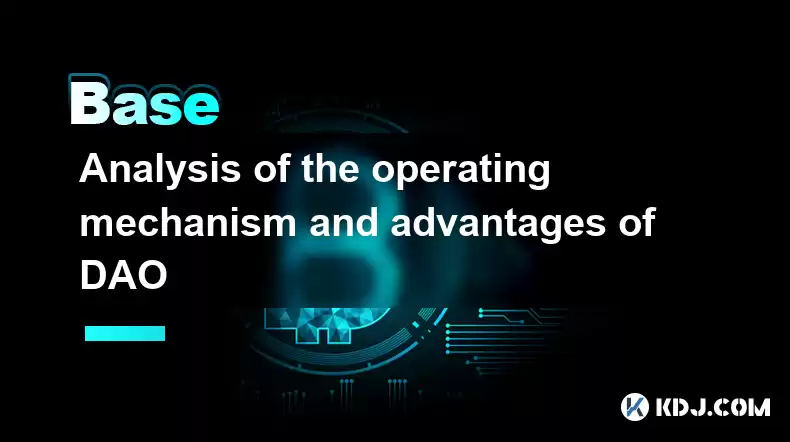
Understanding Decentralized Autonomous Organizations (DAOs)
Decentralized Autonomous Organizations (DAOs) represent a novel organizational structure leveraging blockchain technology. Unlike traditional organizations with centralized control, DAOs operate autonomously based on pre-defined rules encoded in smart contracts. These smart contracts govern all aspects of the DAO, from treasury management to decision-making processes. This decentralized nature eliminates single points of failure and offers increased transparency and security. Members participate and vote on proposals, shaping the DAO's direction collectively.
The Operating Mechanism of a DAO
The core of a DAO's operation lies in its smart contracts. These self-executing contracts automate tasks and enforce rules without the need for intermediaries. Members interact with the DAO through these contracts, proposing and voting on changes, managing funds, and executing transactions. The specific mechanisms vary depending on the DAO's design, but generally involve token holders using their tokens to cast votes on proposals. This process ensures a democratic and transparent governance model.
Tokenized Governance in DAOs
Most DAOs utilize a native token to facilitate participation and governance. Token holders typically have voting rights proportional to their token holdings. This creates a system where the community's collective decisions drive the DAO's evolution. The token also often serves as a means to access exclusive benefits within the DAO's ecosystem, incentivizing participation and community growth. The value of the token often reflects the success and health of the DAO itself.
Decision-Making Processes within DAOs
DAOs employ various decision-making mechanisms, often tailored to their specific needs and goals. Common methods include:
- Simple Majority Voting: Proposals pass if they receive more than 50% of the votes cast.
- Weighted Voting: Votes are weighted based on the number of tokens held, giving larger stakeholders more influence.
- Quadratic Voting: Allows individuals to allocate their voting power across multiple proposals, preventing large token holders from dominating the process.
- Liquid Democracy: Allows token holders to delegate their voting rights to trusted representatives.
Advantages of DAOs: Transparency and Security
One of the significant advantages of DAOs is their inherent transparency. All transactions and governance decisions are recorded on the blockchain, creating a publicly auditable record. This transparency minimizes the risk of fraud and corruption, fostering trust among participants. Furthermore, the decentralized nature of DAOs enhances security. The absence of a central authority makes them resistant to single points of failure and external attacks.
Advantages of DAOs: Efficiency and Automation
DAOs streamline operational processes through automation. Smart contracts automate tasks, reducing the need for manual intervention and minimizing the potential for human error. This automation leads to increased efficiency and cost savings. Moreover, the decentralized nature allows for faster decision-making, as proposals can be put to a vote without the need for lengthy bureaucratic processes.
Advantages of DAOs: Community Ownership and Governance
DAOs empower community ownership and governance. Members collectively own and control the DAO's assets and direction. This fosters a sense of shared responsibility and encourages active participation. The democratic decision-making process ensures that the DAO's actions align with the community's collective will. This participatory model can lead to more innovative and effective solutions.
Advantages of DAOs: Global Accessibility and Inclusivity
DAOs transcend geographical limitations. Members can participate from anywhere in the world with an internet connection. This global accessibility fosters inclusivity, allowing individuals from diverse backgrounds and locations to contribute to the DAO's success. This global reach can also lead to a more diverse range of perspectives and ideas.
Challenges and Risks Associated with DAOs
While DAOs offer numerous advantages, they also face challenges. Smart contract vulnerabilities can be exploited, leading to financial losses or governance issues. The complexity of smart contract code can make it difficult for non-technical users to understand and participate effectively. Furthermore, legal and regulatory uncertainties surrounding DAOs pose significant challenges.
The Future of DAOs
The future of DAOs remains dynamic and uncertain. However, ongoing development and innovation in blockchain technology and smart contract design are likely to address some of the current challenges. The increasing adoption of DAOs across various industries suggests a promising future for this innovative organizational structure. The potential for DAOs to revolutionize governance and organizational structures is significant.
Frequently Asked Questions
Q: What is a DAO?
A: A DAO, or Decentralized Autonomous Organization, is a community-led entity governed by rules encoded on a blockchain. Members participate in decision-making through voting, often using a native token.
Q: How do DAOs make decisions?
A: DAOs use various mechanisms, including simple majority voting, weighted voting, quadratic voting, and liquid democracy, to make decisions based on member votes.
Q: What are the advantages of using a DAO?
A: Advantages include increased transparency, security, efficiency, community ownership, global accessibility, and automation through smart contracts.
Q: What are the risks associated with DAOs?
A: Risks include smart contract vulnerabilities, complexity for non-technical users, and legal and regulatory uncertainties.
Q: What is the role of tokens in a DAO?
A: Tokens often represent membership, voting rights, and access to exclusive benefits within the DAO's ecosystem. The token's value is often tied to the DAO's success.
Q: How can I participate in a DAO?
A: Participation typically involves acquiring the DAO's native token and participating in governance through voting on proposals. Specific participation methods vary depending on the DAO.
Disclaimer:info@kdj.com
The information provided is not trading advice. kdj.com does not assume any responsibility for any investments made based on the information provided in this article. Cryptocurrencies are highly volatile and it is highly recommended that you invest with caution after thorough research!
If you believe that the content used on this website infringes your copyright, please contact us immediately (info@kdj.com) and we will delete it promptly.
- Tron's Sell-Off Spurs Altcoin Shift: What's Next for TRX?
- 2025-08-08 08:30:12
- RUVI Presale: Is the Growth Potential Real?
- 2025-08-08 09:10:12
- Sleep Token's US Takeover: Thornhill Rides the 'Even In Arcadia' Wave
- 2025-08-08 08:30:12
- FTT Token's Wild Ride: Creditor Repayments vs. Market Drop - A New Yorker's Take
- 2025-08-08 07:10:12
- Floki Crypto Price Prediction: Riding the Robinhood Rocket or Just a Meme?
- 2025-08-08 07:15:12
- EigenLayer, Restaking, and Ethereum: Navigating the Hype and the Hazards
- 2025-08-08 06:30:12
Related knowledge
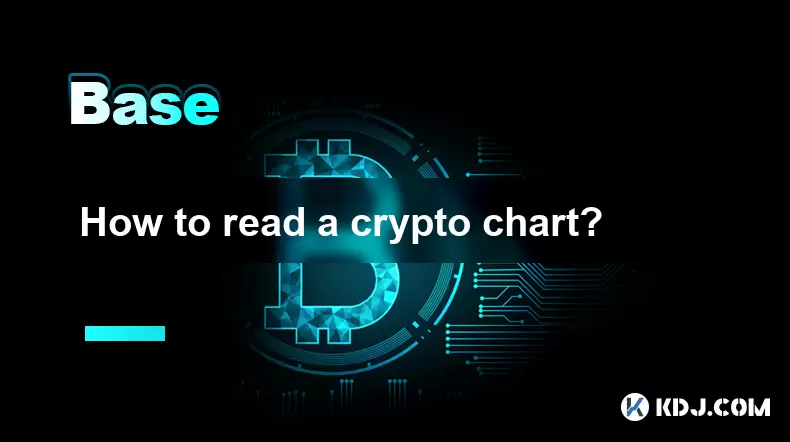
How to read a crypto chart?
Aug 08,2025 at 10:35am
Understanding the Basics of a Crypto ChartA crypto chart is a visual representation of the price movements of a cryptocurrency over time. These charts...
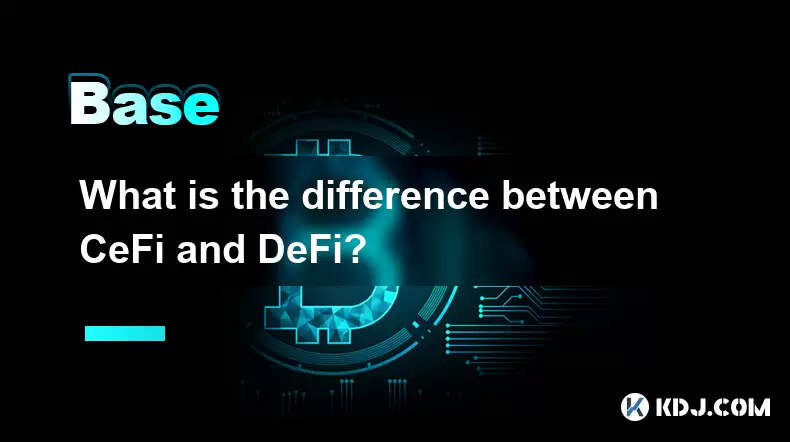
What is the difference between CeFi and DeFi?
Jul 22,2025 at 12:28am
Understanding CeFi and DeFiIn the world of cryptocurrency, CeFi (Centralized Finance) and DeFi (Decentralized Finance) represent two distinct financia...
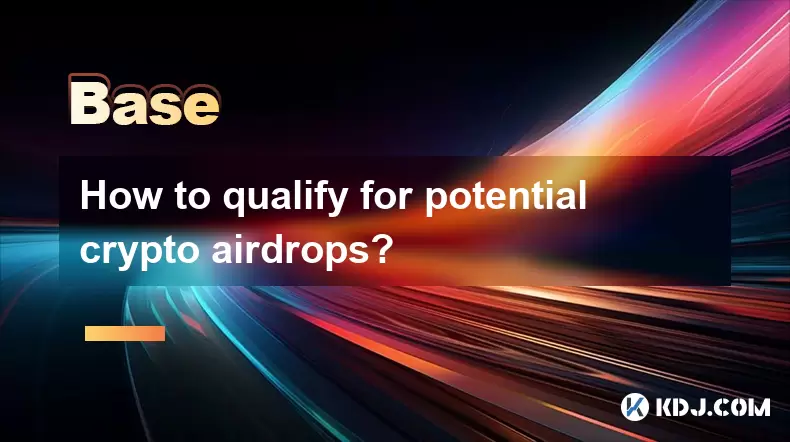
How to qualify for potential crypto airdrops?
Jul 23,2025 at 06:49am
Understanding What Crypto Airdrops AreCrypto airdrops refer to the distribution of free tokens or coins to a large number of wallet addresses, often u...
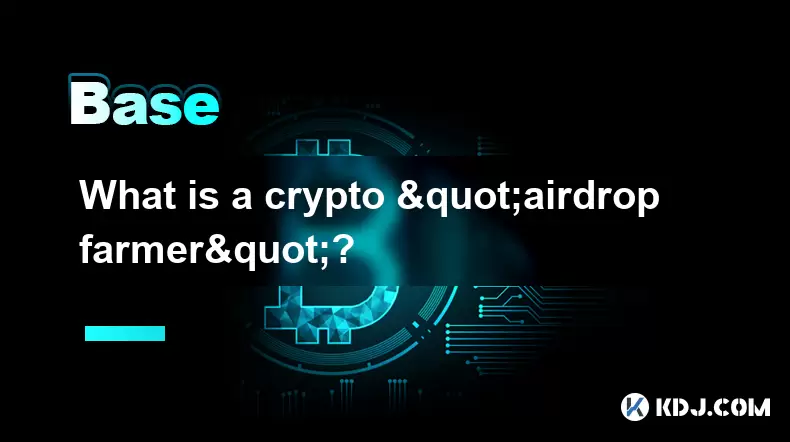
What is a crypto "airdrop farmer"?
Jul 24,2025 at 10:22pm
Understanding the Role of a Crypto 'Airdrop Farmer'A crypto 'airdrop farmer' refers to an individual who actively participates in cryptocurrency airdr...
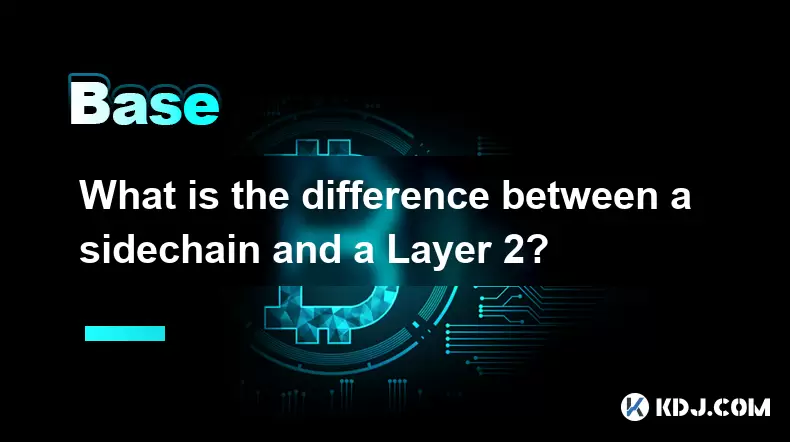
What is the difference between a sidechain and a Layer 2?
Jul 20,2025 at 11:35pm
Understanding the Concept of SidechainsA sidechain is a separate blockchain that runs parallel to the main blockchain, typically the mainnet of a cryp...
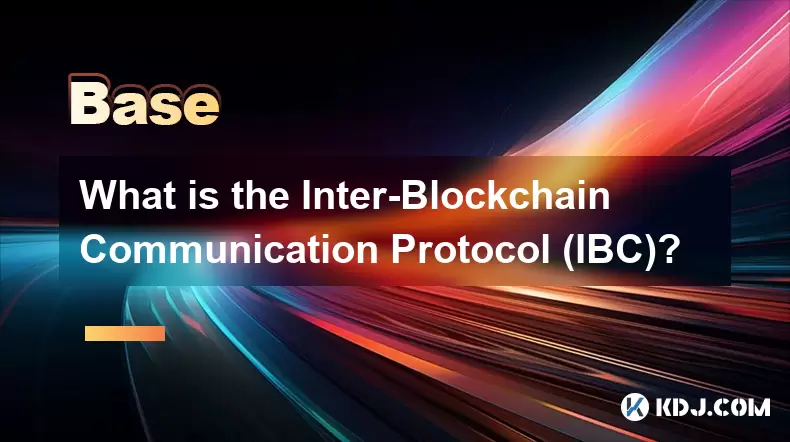
What is the Inter-Blockchain Communication Protocol (IBC)?
Jul 19,2025 at 10:43am
Understanding the Inter-Blockchain Communication Protocol (IBC)The Inter-Blockchain Communication Protocol (IBC) is a cross-chain communication protoc...

How to read a crypto chart?
Aug 08,2025 at 10:35am
Understanding the Basics of a Crypto ChartA crypto chart is a visual representation of the price movements of a cryptocurrency over time. These charts...

What is the difference between CeFi and DeFi?
Jul 22,2025 at 12:28am
Understanding CeFi and DeFiIn the world of cryptocurrency, CeFi (Centralized Finance) and DeFi (Decentralized Finance) represent two distinct financia...

How to qualify for potential crypto airdrops?
Jul 23,2025 at 06:49am
Understanding What Crypto Airdrops AreCrypto airdrops refer to the distribution of free tokens or coins to a large number of wallet addresses, often u...

What is a crypto "airdrop farmer"?
Jul 24,2025 at 10:22pm
Understanding the Role of a Crypto 'Airdrop Farmer'A crypto 'airdrop farmer' refers to an individual who actively participates in cryptocurrency airdr...

What is the difference between a sidechain and a Layer 2?
Jul 20,2025 at 11:35pm
Understanding the Concept of SidechainsA sidechain is a separate blockchain that runs parallel to the main blockchain, typically the mainnet of a cryp...

What is the Inter-Blockchain Communication Protocol (IBC)?
Jul 19,2025 at 10:43am
Understanding the Inter-Blockchain Communication Protocol (IBC)The Inter-Blockchain Communication Protocol (IBC) is a cross-chain communication protoc...
See all articles

























































































